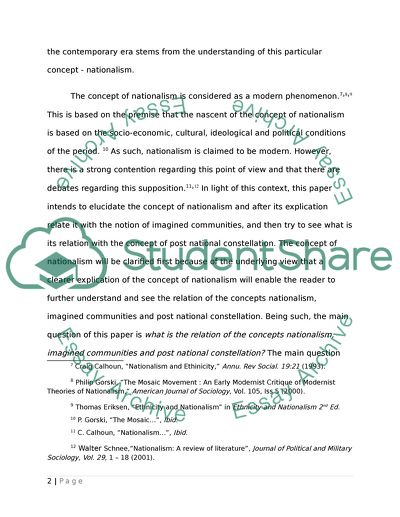Cite this document
(The Concept of Nationalism Essay Example | Topics and Well Written Essays - 5000 words, n.d.)
The Concept of Nationalism Essay Example | Topics and Well Written Essays - 5000 words. Retrieved from https://studentshare.org/sociology/1736113-sociology
The Concept of Nationalism Essay Example | Topics and Well Written Essays - 5000 words. Retrieved from https://studentshare.org/sociology/1736113-sociology
(The Concept of Nationalism Essay Example | Topics and Well Written Essays - 5000 Words)
The Concept of Nationalism Essay Example | Topics and Well Written Essays - 5000 Words. https://studentshare.org/sociology/1736113-sociology.
The Concept of Nationalism Essay Example | Topics and Well Written Essays - 5000 Words. https://studentshare.org/sociology/1736113-sociology.
“The Concept of Nationalism Essay Example | Topics and Well Written Essays - 5000 Words”, n.d. https://studentshare.org/sociology/1736113-sociology.


